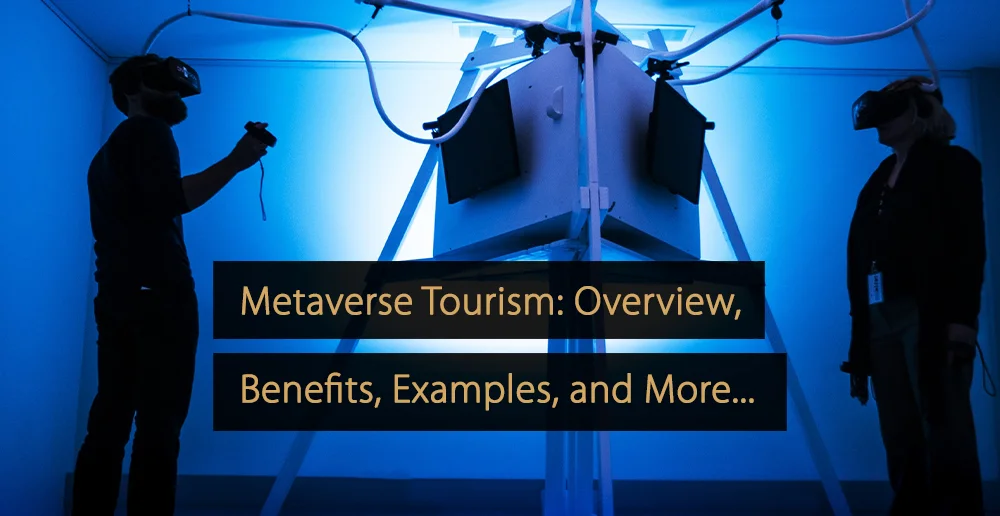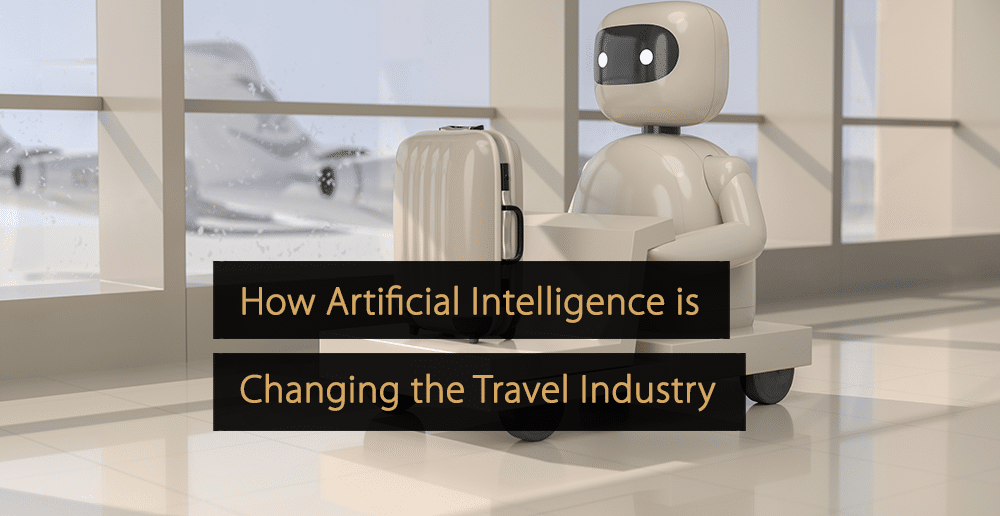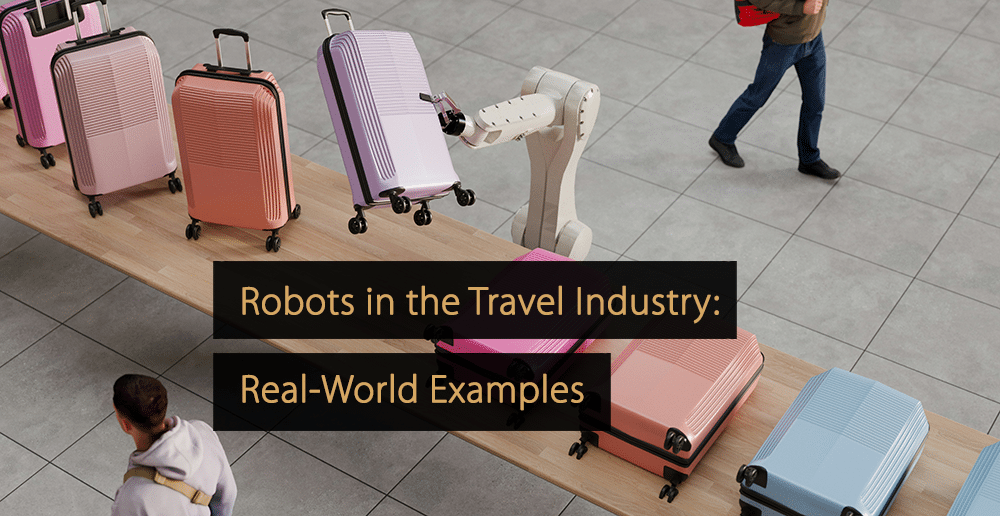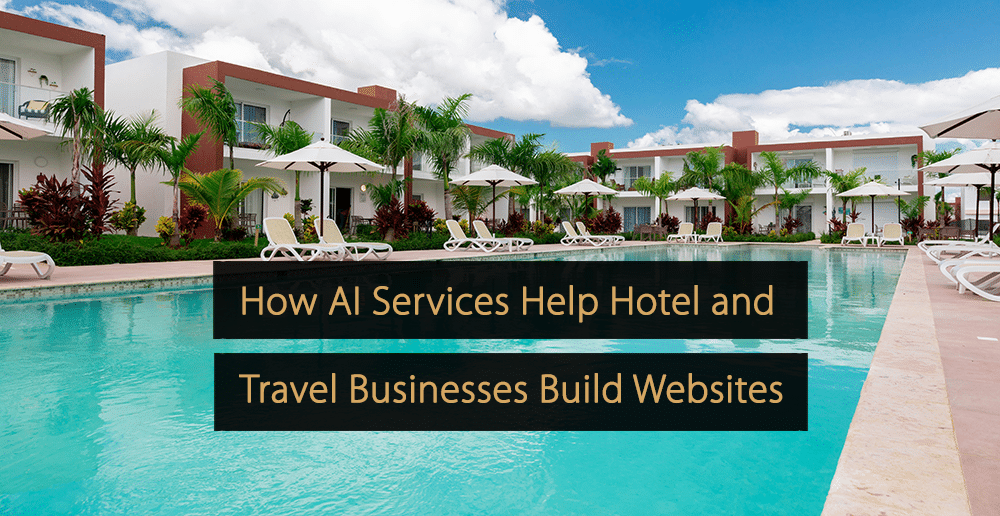The idea of the metaverse has existed since the 1990s and has become a more well-known concept recently as technology has advanced. This has opened up metaverse tourism opportunities, which businesses in the sector are keen to capitalize on. In this post, you will find details on the metaverse as a concept, its current uses within the tourism industry, and the many metaverse tourism opportunities that are on the horizon.
Table of Contents:
- The Metaverse: What Does It Mean?
- How Do the Metaverse and Virtual Reality Differ?
- What is the Tourism Industry?
- How is the Metaverse Changing the Tourism Industry?
- Which Devices Are Used to Access Metaverse Tourism?
- Potential Benefits for Tourism in the Metaverse
- Examples of the Tourism Industry Taking Advantage of the Metaverse
- Examples of Businesses in the Metaverse Tourism Space
- Metaverse Tourism and Blockchain Technology
- Metaverse Tourism and the Benefits for Hotels
- Opportunities for Metaverse Tourism and Hospitality
- Virtual Reality, and the Tourism and Hospitality Metaverse
The Metaverse: What Does It Mean?
The concept of the metaverse refers to the creation of virtual worlds which are centered around social connections. This can take many forms, from virtual reality experiences, where users are placed in a digitally transformed environment, to augmented reality overlays of the real world or even through video games.
The metaverse concept is often associated with users having control over a digital avatar, which is then used to communicate with others who are active in the metaverse. Aside from its social component, businesses are also exploring the various opportunities the metaverse provides to reach customers wherever they are.
This has then led to the metaverse being seen as one of the emerging tourism trends. As metaverse tourism opportunities continue to emerge and user adoption increases, the metaverse will likely play a larger role in the tourism industry, enhancing communication and the customer or guest experience.
Would you like to learn more about the Metaverse? The article “Metaverse Guide; Understanding The Basics Will Open Up a New World” provides more in-depth information about this new “universe”. The website also provides a list of Metaverse blog’s specializing in this subject.
How Do the Metaverse and Virtual Reality Differ?
When discussing the idea of the metaverse, some people initially struggle to understand how it is distinct from virtual reality as it already exists. Essentially, the defining trait of the metaverse is creating an interactive virtual world, so while virtual reality plays a role, it is not necessary.
For example, interactive virtual worlds can be created and explored through video games, interactive video content, augmented reality, and other similar technology. An excellent way to understand this distinction is to think of virtual reality as just one possible technology that can facilitate metaverse tourism offerings.
What is the Tourism Industry?
When exploring the idea of metaverse tourism, clearly defining the tourism industry can also be useful. This section of the service industry focused on activities related to the short-term movement of people away from where they live. It includes transportation, guest accommodation, entertainment, and food and beverages.
You can explore the tourism industry further and deepen your understanding of what it is and the different activities under its umbrella by reading “Tourism Industry: Everything You Need to Know About Tourism”.
How is the Metaverse Changing the Tourism Industry?
The COVID-19 pandemic helped to demonstrate one of the ways the tourism industry is potentially vulnerable, but there are other ways besides. For instance, as awareness of climate change increases and as more action is required, it is feasible that customers will focus on local rather than international travel.
These vulnerabilities help to highlight one of the most crucial ways in which the concept of metaverse tourism is helping to change the tourism industry. The idea of interactive virtual worlds could help alter how customers engage with other locations and may replace some instances of physical travel without hurting the industry.
Which Devices Are Used to Access Metaverse Tourism?
Several devices can be used to facilitate metaverse tourism experiences. In the sections below, you can read about how these devices can be used and why they are beneficial.
Mobile Phones and Computers
One of the keys to delivering metaverse tourism is having a device with sufficient processing power to access it. Fortunately, such devices are commonplace because the metaverse can be accessed using modern smartphones and tablets or a desktop or laptop computer.
Smartphones are useful for augmented reality because modern smartphones’ cameras and screens can combine to overlay information over real-world environments. However, a reasonably powerful computer is one of the best options because these devices can be used with a wide range of external devices, such as virtual reality headsets.
VR Headsets
Virtual reality headsets are worn on the head and can place users in a digital environment that differs from their real-world surroundings. While wearing a VR headset and using the right accessories, moving around this virtual space and interacting with its elements is generally possible.
Head motion tracking means that users can look around 360 degrees. This can be especially beneficial for metaverse tourism because it allows hotels to provide virtual tours of properties and travel companies to provide virtual travel experiences. When accessing the metaverse, VR headsets offer a high level of immersion.
AR Data Glasses
Augmented reality is somewhat similar to virtual reality, but it involves overlaying data over a real-world environment rather than replacing the real-world environment with an entirely digital one. AR can be achieved using a smartphone with a camera, and Pokemon Go is one of the best-known examples, but AR glasses can take this to the next level.
Regarding its role in the metaverse combined with tourism industry goals, augmented reality glasses can help provide valuable information when needed most. For instance, imagine an app allowing AR glasses wearers to see reviews for a restaurant or tourist attraction when they look at it in real life.
Mixed Reality Headsets
Mixed reality is another metaverse tourism technology broadly similar to augmented reality in that it uses digital overlays and does not completely replace your real-world environment. However, unlike AR, it always requires a headset, and it takes the basic AR concept to the next level by allowing for far greater interaction.
In particular, mixed reality allows users to interact with the digital objects they see, and those digital objects can often interact with one another too. This makes it a more immersive experience than AR. It should also be noted that mixed reality is not yet at the same level as VR and AR when it comes to being tried and tested.
Potential Benefits for Tourism in the Metaverse
While it is essential to understand how metaverse tourism is helping to change the industry, business owners and other decision-makers also need to be aware of the tangible benefits. You can learn about some of the ways this particular form of tourism technology can help businesses below:
Inspire Tourism-Related Purchases
A major plus point associated with the concept of metaverse tourism is the way it can help to inspire tourists. For example, interactive virtual reality experiences can recreate real-world environments and give travelers a clear idea of what they might expect when they visit a particular destination.
The same concept can be applied to hotels and transportation, with VR experiences helping potential guests understand what properties offer or how long a journey will take. Ultimately, this means the metaverse can help to inspire tourists and encourage them to complete a booking or purchase.
Enhance the Booking Experience
Aside from providing inspiration, metaverse tourism solutions have the power to greatly enhance booking processes by providing valuable information that cannot be accurately delivered in other ways. This makes it more likely that a customer will complete their booking journey rather than back out.
For example, hotels can use VR tours or digital avatars to allow customers to walk around a realistic recreation of their property, getting a sense of how big rooms are and what facilities are on offer. Travel agents, meanwhile, can use VR tours to provide customers with life-like experiences of a location they wish to travel to.
Increase Booking Volume
Ultimately, the real value of metaverse tourism offerings during a booking process is their ability to increase overall booking volumes. This occurs because of a combination of the previous two factors.
Initially, customers can gain inspiration from virtual and augmented reality travel technology, while the actual experience of booking hotels, restaurant tables, and other similar services becomes much more enjoyable, informative, and valuable as a tool for influencing purchasing decisions.
Examples of the Tourism Industry Taking Advantage of the Metaverse
To further enhance your understanding of metaverse tourism solutions, reading about some examples of the tourism industry taking full advantage of technology in this area can be useful.
Immersive Virtual Travelling – VR Tourism
Virtual reality technology goes hand-in-hand with the concept of metaverse tourism, but it has the power to take things to a whole new level through VR tourism. Here, virtual reality experiences are used to either replace the need for tourism or to provide additional experiences that enhance real travel experiences.
Virtual reality tours can already provide realistic experiences where people can enjoy exploring tourist attractions from their homes. Taking this to the next level, however, these virtual tourist attractions are now being used to host virtual concerts, entertainment events, or virtual business meetings.
Video: A Sneak Peak Into Metaverse Tourism
Augmented Reality in Tourism
Those responsible for managing a tourism business, or tourism management in general, may also wish to explore some of the ways augmented reality is used to provide metaverse tourism solutions. For instance, smartphones and augmented reality apps can help provide information about real-world surroundings.
This could result in interactive hotel elements, AR-powered tourist destinations, and beacon technology to provide relevant push notifications at the perfect moment. To learn more about how augmented reality disrupts the industry read the article “How Augmented Reality is Revolutionising the Travel Industry”.
Facilitating Online Trade Shows and Expos
Trade shows, expos, and similar events were adversely affected by the COVID-19 pandemic and needed to be brought into the online sphere. These events are also susceptible to many of the same threats as the tourism industry, such as increased climate change awareness.
Metaverse tourism solutions can help take these online events to the next level, providing greater immersion. Not only can the events be moved into the online sphere, but the kind of social interactions that are possible in person can also be replicated through VR, avatars, or alternate means.
Virtual Theme Parks and Other Attractions
Finally, one of the most significant ways metaverse tourism is taking off is through the creation of virtual theme parks, museums, zoos, and other similar attractions. This can provide a realistic experience for customers, who get to enjoy something akin to a real experience of this kind.
Yet, at the same time, it can provide significant advantages for businesses. For example, a virtual theme park is not subject to the same strict safety regulations as an actual theme park and is not necessarily even bound by the rules of gravity. Similarly, a virtual zoo does not require companies to obtain and care for real animals, and the animals in that zoo could include everything from current animals to extinct animals and even entirely fictional creatures.
Examples of Businesses in the Metaverse Tourism Space
In the sections below, you can read about some of the businesses already using the metaverse combined with tourism industry technology to achieve their objectives.
New Frontier
The Great Tapestry of Scotland (GTS) is one of Scotland’s most unique and impressive tourist attractions. It is a community art project housed in the town of Galashiels, and the tapestry tells the story of Scotland’s history. New Frontier worked with GTS to create a metaverse tourism solution – a digital recreation of the tapestry.
To achieve this, New Frontier created NFTs for different themes from the tapestry, such as battles, traditions, and kings and queens. The NFTs were designed to be scaled easily further down the line, and New Frontier also created the project with the intention of adding interactive games in the future.
Emirates
Emirates experimented with metaverse tourism solutions for several years, and virtual reality experiences are now at the heart of the company’s offerings. For example, the Emirates website allows users to explore a 360-degree virtual tour of the cabin of an Emirates aircraft.
Beyond this, Emirates has developed its own VR app, allowing users to explore Airbus A380 and Boeing 777 aircraft interiors. Finally, an interactive 3D seat map allows customers to understand better what their seat will be like, and they can even book their preferred seat from within that virtual environment.
Video: Emirates Airline
Coachella
The music festival Coachella has engaged with metaverse tourism by creating the Coachellaverse digital experience. The primary aim of the Coachellaverse is to allow people who cannot attend the event in person to interact with elements of the event or to participate in their own way from their homes.
For example, users can experience live performances from music artists enhanced through augmented reality technology. On top of this, there are ways to interact with other users, play games, purchase music-related NFTs, and view exclusive content from the musicians performing at the event.
Video: Coachellaverse | Coachella 2022
Vueling
Spanish low-cost airline Veiling has become one of the first airlines to sell services within the metaverse through the use of the Next Earth metaverse platform and through a partnership with Iomob, a blockchain open mobility marketplace. The collaboration is one of the best examples of the metaverse combined with hospitality industry needs.
Using the Next Earth platform, users will be able to not only visualize real-world trips but also book them directly through the virtual world. The partnership strongly emphasizes sustainability, and one of the key features involves offering customers the opportunity to track carbon emissions and book the most eco-friendly trips.
Seoul
One of the most ambitious metaverse tourism projects comes from the Seoul Metropolitan Government, which has launched Metaverse Seoul – a metaverse replica of a real-life city. The creation of the virtual world itself is expected to finish in 2026, but the initial launch allows users to create avatars and interact in several vital ways.
For instance, users can use their avatars to visit youth centers for counseling or tax offices to receive financial advice. It is hoped that, in the long term, this metaverse project will provide a valuable space where users can interact, communicate, seek help, and explore the city without facing prejudice or discrimination.
Video: Seoul to test the city’s own Metaverse platform
Rendezverse
Rendezverse is a metaverse tourism and hospitality platform, which aims to reproduce the experience of events and conferences being held in hotels, but within a virtual space instead. Essentially, the platform allows hotels and event companies to create a digital version of a property, which users can then populate or explore.
Users can encourage participants to create their own avatars, which will be present within the virtual world. Meetings can also be recorded for future re-use or analysis so that lessons can be learned and future meetings can be improved. The recreated properties can also sell event spaces online without in-person visits.
Video: The Virtual Hotel (in the Metaverse)
Mövenpick
Mövenpick Hotel Amsterdam City Centre is an example of a hotel company that has opted to use the aforementioned Rendezverse service. One of the ideas behind this is to try to improve pre-event venue inspection, which is conventionally an area where event organizers spend a lot of time, effort, and money.
Using this metaverse tourism solution, it is hoped that event organizers will be able to fully explore the venue virtually while also getting a sense of what the hotel offers in other areas. This means that events can potentially be organized without having to travel to the hotel first physically.
Qatar Airways
Qatar Airways has experimented with metaverse tourism options and produced some excellent results. The primary metaverse solution is QVerse, a virtual reality experience powered by Unreal Engine. Website visitors can access it, and it provides a virtual tour, highlighting what Business Class and Economy Class cabins look like.
Yet, Qatar Airways took this concept to the next level by creating an experience fully narrated and guided by a digital cabin crew. A 3D human model will take users through their virtual experience, explaining the key features on board and delivering a level of interaction and immersion not seen in other VR airline experiences.
Video: Introducing QVerse
Pinktada
Pinktada is a company that has taken metaverse tourism by storm by facilitating ‘tokenization’ within the travel sphere. When a customer books a hotel room with Pinktada, they are actually purchasing an RNT, or ‘Room Night Token,’ and this is linked to a specific room within a specific hotel.
This token also has market value and can be traded through the platform. So, for example, the token can be sold in exchange for the platform’s currency, ‘PinkCash’, or exchanged for a different booking. The token could even increase in value over time, such as when a major event is announced on the night of the booking.
Barbados Government
Barbados’s government has started exploring metaverse tourism by participating in the Decentraland virtual world. The government established a metaverse embassy on this platform – the first of its kind. This means that an official embassy can be accessed by anyone using a computer and/or virtual reality headset.
It is hoped that the move will help Barbados lead the world to a new future where digital diplomacy is the norm, and the government is said to be sharing information on the project with other governments worldwide.
Millennium Hotels
Millennium Hotels also used the Decentraland platform for metaverse tourism purposes, becoming the first business to open and operate a hotel within the metaverse. The hotel was introduced to help to build awareness for the M Social brand, and the virtual property was carefully modeled to resemble real M Social buildings.
Initially, users could explore the hotel and gain insight into the layout of a real-world M Social hotel. However, it was designed so that guests can also rent space within the hotel for their own needs. For example, brands can rent space in the lobby to show off new products or rent a room to promote their business.
Video: Millennium Hotels and Resorts
Metaverse Tourism and Blockchain Technology
Aside from virtual reality, augmented reality, and similar tools, blockchain technology is one of the biggest technology trends associated with the metaverse tourism concept. This is especially important for businesses in the industry, as it can be used for everything from secure payments to ID verification.
Read “Blockchain Technology and Its Uses in the Hospitality Industry” if you would like to explore the topic of blockchain further and gain a deeper understanding of its applications within hospitality and tourism.
Metaverse Tourism and the Benefits for Hotels
An aspect of metaverse tourism that has seen significant growth is the idea of the metaverse within hotels. Not only can the metaverse assist with the booking process, several hotels are also experimenting with ideas like metaverse spaces for celebrations, allowing people in different parts of the world to come together.
Check out “How Can the Hotel Industry Take Advantage of the Metaverse?” for much more on how the hotel industry is embracing metaverse technology and the ways this technology can benefit those working there.
Opportunities for Metaverse Tourism and Hospitality
As with metaverse tourism, there are several exciting opportunities within the hospitality industry, and businesses are gradually waking up to this fact. Restaurants have the power to take potential customers through cooking experiences to encourage bookings, while guest accommodation businesses can offer tours and metaverse meetings.
Read the “Metaverse Opportunities for the Hospitality Industry” article if you are keen to find out more about how the metaverse is being leveraged to maximum effect within the hospitality sector.
Virtual Reality and the Tourism and Hospitality Metaverse
Although the two technologies are not entirely synonymous, the metaverse goes hand-in-hand with the idea of virtual reality, and metaverse tourism opportunities are largely expected to focus on virtual experiences. However, VR also impacts other areas, including virtual booking engines or interfaces.
Look at “How Virtual Reality is Transforming the Travel Industry” to learn more about the numerous ways businesses are deploying VR technology to improve relationships with customers and provide memorable experiences.
Metaverse tourism and tourism technology are helping to alter the relationship between businesses and their customers by bridging physical distances and offering new experiences. In particular, the metaverse concept provides opportunities to inspire customers and provide valuable information that will likely increase bookings.
More Tips to Grow Your Business
Revfine.com is the leading knowledge platform for the hospitality and travel industry. Professionals use our insights, strategies, and actionable tips to get inspired, optimize revenue, innovate processes, and improve customer experience.Explore expert advice on management, marketing, revenue management, operations, software, and technology in our dedicated Hotel, Hospitality, and Travel & Tourism categories.








Leave A Comment